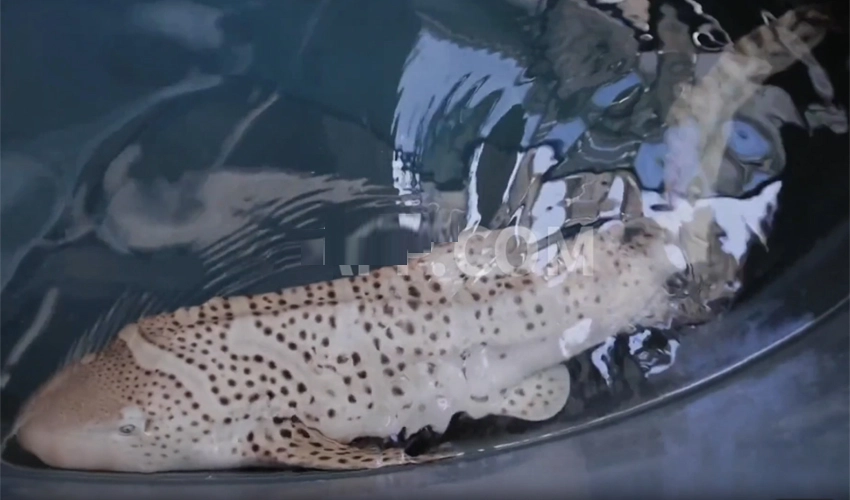Endangered zebra sharks hatch in Indonesia rewilding project

JAKARTA (AFP) - At just a few dozen centimetres long, newly hatched zebra sharks Lingka and Spotty Dotty carry the weight of their species on their little dorsal fins.
The two female hatchlings born in Indonesia are part of a unique programme that hopes to rebuild the population of the endangered species in the Raja Ampat region. The striking black-and-cream striped pair were transported as eggs from a breeding programme at the SEA LIFE Sydney Aquarium and conservationists hope they will eventually join four other shark pups that have so far been released into the wild by StAR, an international project to reintroduce zebra sharks.
Research suggests just 20 zebra sharks remain in Raja Ampat, an area known for its abundant marine life and spectacular coral reefs. "Although there are several large-scale marine protected areas (MPAs) in the region and many species of reef sharks have rebounded across the 20 years of the MPAs being implemented, zebra sharks have not," said Laura Simmons, regional curator for SEA LIFE Aquariums in Australia and New Zealand.
"There was a need for genetically appropriate animals to be augmented into Raja Ampat, and public aquaria had them," she told AFP. The StAR project hopes to build a population of 500 zebra sharks in the region in a decade, the minimum size required for a healthy and genetically diverse population.
Once big enough, the pups will be tagged and released into sea pens before eventually heading into the wild. Simmons said the project is the only one of its kind for elasmobranchs -- the class that includes sharks and rays -- and required years of data and research.
The work must also adhere to strict international guidelines on the reintroduction of species. The newly hatched pair represent a small step towards recovery of the species but their successful release could offer hope for other similarly threatened creatures, Simmons said. "This paves the way for other species that are in need of recovery and support."







